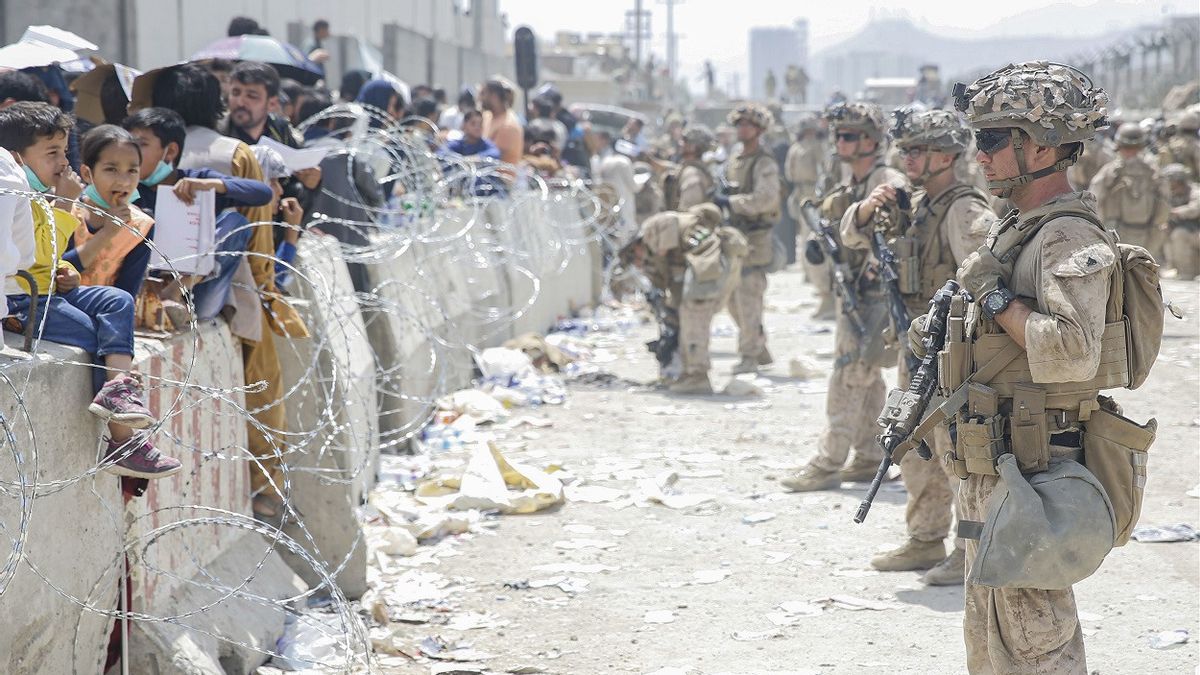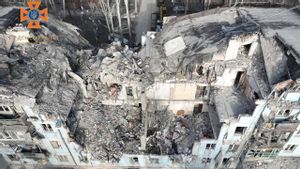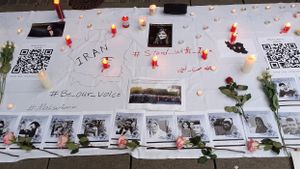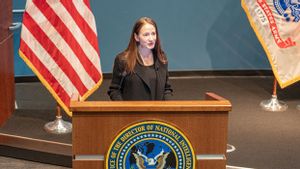JAKARTA - A former US Marine Corps sniper who was critically injured in a suicide attack outside Kabul airport during the chaotic withdrawal from Afghanistan after the Taliban seized power in 2021 said Wednesday he and his team had a chance to shoot down the bomber, but never given permission to do so.
Sergeant Tyler Vargas-Andrews, who lost a leg, arm and kidney in the August 26, 2021 attack on the Abbey Gate entrance to the airport, was one of several witnesses who provided chilling details to Congress regarding the final days of the United States' longest war.
He described a breakdown in the line of authority, leaving him and his team unclear whether they could ambush the suspected suicide bomber.
He described identifying exact matches from intelligence warnings about the suicide bomber's description, sharing photographic evidence with his battalion commander, then seeking permission to shoot him.
"Our battalion commander said, and I quote, 'I don't know,'" Sergeant Vargas-Andrews said, as reported by The National News, March 9.

"Me and my team, we asked very rudely, 'Who did it? Because this is your responsibility, sir.' He again replied he didn't know… We didn't receive any updates and never got our answer. Eventually (the suspect) disappeared."
The claim was met with visible shock and outrage by some congressional representatives.
A Pentagon report last year concluded the attack "was not preventable", that safety precautions had been taken and that intelligence about the potential threat circulating that day was "non-specific".
The suicide bombing killed at least 183 people: 170 Afghan civilians and 13 members of the US military.
"Plain and simple, we were overlooked. Our expertise was overlooked. No one is held accountable for our safety," Sergeant Vargas-Andrews told the US House Foreign Affairs Committee.
Republicans, who now control the House of Representatives, are holding hearings and have opened an investigation into the final weeks of the 20-year US occupation of Afghanistan.
President Joe Biden, who is overseeing the withdrawal, is largely shielded from the watchful eyes of Congress, while Democrats control the chamber.
Sergeant Vargas-Andrews was among dozens of US troops injured in the airport attack. She paused to weep as she gave her testimony, while several members of Congress struggled to maintain their composure.

"I knew immediately what had happened. I opened my eyes to the dead or unconscious marines lying around me, hundreds of people immediately disappeared in front of me. And my body was badly injured," Sergeant Vargas-Andrews recalled.
Republicans have sought to portray President Biden's Administration actions as a "dereliction of duty." Meanwhile, President Biden blamed his predecessor, Donald Trump, for breaking a deal with the Taliban that all but ensured a hasty withdrawal under a short deadline.
Committee Chair Michael McCaul described Administration coordination as "split" ahead of the withdrawal, with "stark" differences in assessments between the Pentagon, State Department and the White House.
"What's happening in Afghanistan is a systemic breakdown of the federal government at every level, and a stunning leadership failure by the Biden Administration," McCaul criticized.
"I will not rest and this committee will not rest until we have concluded how this happened," he said.
SEE ALSO:
Meanwhile, Democrat Gregory Meeks defended the Biden Administration, saying the withdrawal was the "right decision", and highlighting veterans' struggles in grappling with the "forever war".
"I cannot in good conscience imagine sending more American men and women to fight in Afghanistan," Meeks said.
As of March 2022, Washington had evacuated only 3 percent of Afghans who had worked for the American government and applied for special visas, leaving about 78.000 people behind, according to a report by the nonprofit Association of Wartime Allies.
The English, Chinese, Japanese, Arabic, and French versions are automatically generated by the AI. So there may still be inaccuracies in translating, please always see Indonesian as our main language. (system supported by DigitalSiber.id)














